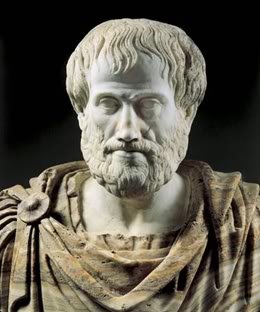step 1: your personal wealth philosophy
Understanding your personal wealth philosophy
What is your relationship with your money? Sound like an odd question? But maybe a bit intriguing? Investors spend a lot of time scouring for investments, devising strategies and calculating what they have and what they think they will need. But the starting point is the personal story of how you have acquired the wealth you are investing, your influences, sense of responsibility, attitudes towards money in general and the values you hope to enshrine in how your wealth is used. Your financial planning and investing decisions are some of the most important you will make and will either give you a sense of ease and comfort, or anxiety and stress. It is important that your investment portfolio reflects your attitudes and values towards your wealth. That means you need to have a good understanding of what your wealth means to you.
This first step in the investment planning process frames your overall attitude, desires and values. While not quantitative, it serves to inform all the decisions you will make for your investment plan. An articulated personal wealth philosophy can provide insight and information about your unique situation that will be included in your personal Investment Policy Statement and reflected in your investment portfolio. A professional advisor may use an in-depth survey of your financial philosophy to for estate planning and legacy planning. We will not go that far in this exercise but present a truncated version that serves to frame your sources of wealth, attitudes, values and hopes for the financial assets you are building. It gives your investment plan a truly personal foundation. It gives a personality to your wealth and, when done correctly, a reflection of your personality.
Some practical uses of the information in your Personal Wealth Philosophy include:
- A risk modifier for goal setting
- Preferences for directed investing - Environmental, Social, Governance (ESG), impact investing, activist investing
- Control and accountability sections of your Investment Policy Statement
- Foundation for further estate planning/legacy planning
getting personal with your money
 |
"First, have a definite, clear practical ideal; a goal, an objective. Second, have the necessary means to achieve your ends; wisdom, money, materials, and methods. Third, adjust all your means to that end." -Aristotle |
Carefully consider and answer the following questions. You will likely have an immediate insight for many, but for others you may need to ponder for a time and return to after some reflection. The possible responses are only a guide; you are encouraged to devise your own answers to reflect your unique situation. The answers you come up with can then be incorporated into a written Personal Wealth Philosophy. We use the term "personal" as a contrast to an institutional statement. You may feel more comfortable replacing the words "personal" with "family" if appropriate.
A) What is the source of the wealth you are investing?
Possible responses include: Employment earnings, Income and profits from a personal or family business, Investment proceeds, Rental property, Gifts from living benefactors, Inheritance, Legal proceeds, Chance windfall (lottery, gambling).
B) To what do you attribute this wealth?
Possible answers include: Personal work ethic, A good education, Sound decision making in money matters, A disciplined lifestyle (living frugally, etc.), Smart investment decisions, Joint efforts of my partners/colleagues, The generosity of others, Good luck/fortune, The assistance/will of a Higher Power.
C) What does your wealth represents to you?
Possible answers include: Sense of achievement, Pride in my financial accomplishments, Ability to secure my social standing, A sense of security from want or need, Resources towards accomplishing larger, longer-term goals, The ability to influence or support social or political issues I care about, Supporting my religious community, Ability to care for family and friends in need, The ability to start my own business, Flexibility to pursue the interests I care about,
D) What has influenced your values/attitudes towards your wealth?
Possible answers include: Experiencing financial struggles growing up, Conflicts over money between parents or family members, Benefiting from the advantages wealth can provide in growing up and preparing me for adult life, Enjoying the comforts of adequate wealth growing up, Becoming involved in social issues or political positions regarding money and wealth, Media representations of money (good or bad) such as the movies and books that influenced me.
E) What are your responsibilities to your wealth?
Possible answers include: Conserve it for my future consumption or for heirs, To grow it through prudent investments, To speculate on risky ventures that may benefit society, To further the goals of those whose labor it represents, To ensure it is managed by competent professionals, To ensure its purchasing power does not erode.
F) What are responsible uses of your wealth, by yourself or benefactors?
Possible answers include: Education, Health care, Home, Car, Business capital, Legal bills, Paying down debt, Retirement, Vacation/Travel, Consumer goods, Charity, Entertainment, Political contributions,Support of religious institutions.
G) How open are you about discussing your wealth?
Possible answers include: My wealth is a private matter I rarely discuss with others, I am comfortable discussing my wealth with those I immediately share it with and with professionals hired to help me with my wealth management needs, My wealth and what it represents is a legitimate topic for my family and closest friends, I am comfortable discussing my wealth with a larger group, I encourage others to learn from my experiences and may use the story of my own wealth creation as a reference.
H) What kind of reference/benchmark do you use to assess how successful you are in wealth creation and management?
Possible answers include: I use only internal references, measuring against my personal goals without regard to external benchmarks (other people, market indicies), I use mostly comparative (external) benchmarks such as my peer group or market indicies to calibrate how successful I am, I use a combination of personal goals and external references.
I) How much control over how your wealth is invested are you comfortable with?
Possible answers include: Planning and investment decisions should be kept solely in my hands, Most or all planning and investment decisions may be delegated to trusted advisors and expert managers, while I maintain ultimate oversight and authority, Wealth planning and investment decisions should be shared by all those who will benefit from my assets or for whom use is intended.
J) Is your wealth more a source of anxiety or comfort?
Possible answers include: I worry about not accumulating enough wealth to meet my long-term goals, I take great comfort knowing I have reserve assets to meet my immediate needs in an emergency, Although I have significant assets, I still worry about losing what I have, I feel good about having the capability to make positive contributions with my wealth for my family and/or society.
make it official - your personal wealth philosophy is an important investment document
|
A written Personal Wealth Philosophy gives weight and importance to your wealth story. |
 |
It is difficult to contrive a general form that captures all the nuance and prioritization of every investor. For that, a qualified investment professional should be used that can help craft a personally tailored wealth philosophy document. One that you truly captures your relationship with your money.
But to capture some of the essential points of the questions above, the Investment Synapse offers the following "short form". Copy and paste the following into an editable document and replace the blanks with your responses to the indicated questions above. Keep this document with your other investment documents. It will serve to as a reference and guidance for all subsequent investment decisions.
This is the Personal Wealth Philosophy for ___(your name, family name, etc.)____. We wish to create this guidance document to provide insight into how my/our wealth should be regarded and our desires for its investment and use. The wealth I/we have accumulated or are currently accumulating reflects my/our unique life story. The wealth I/we have accumulated and/or am currently accumulating comes from __(answer to A)__. I/We attributed our ability to secure this wealth to __(answer B)__. Having this wealth means __(answer to C)__. This meaning I/we attribute to my/our wealth is heavily influenced by __(answer to D)__.
Based on the origin of my/our wealth and my/our attitudes towards money in general, I/we feel it my/our responsibility to __(answer to E)__. In turn, responsible use of this wealth would include __(answer to F)__. Considering these responsibilities, I/we feel discussions around my/our wealth is __(answer to G)__.
I/We have goals for my/our wealth and a portion of this wealth is invested according to an investment plan. I/we believe the progress or success of this investment plan is most appropriately evaluated according to __(answer to H)__. Regarding management of how my/our wealth is invested, I/we feel __(answer to I)__.
Overall, the wealth I/we have accumulated/are accumulating, and how it is invested, embodies my/our hopes and concerns, values and outlook. I/we feel __(answer to J)__ and this attitude should be reflected in decisions made regarding my/our wealth.
A separate document, my/our personal Investment Policy Statement, should reflect this Personal Wealth Philosophy, including risk parameters, accountability, control of assets and investment constraints/directions, among other factors.
I/We intend that this Personal Wealth Philosophy will serve to provide the story behind my/our wealth in general and guide decisions about the management, investment and use of my/our personal wealth.
___________(signatures)_________________